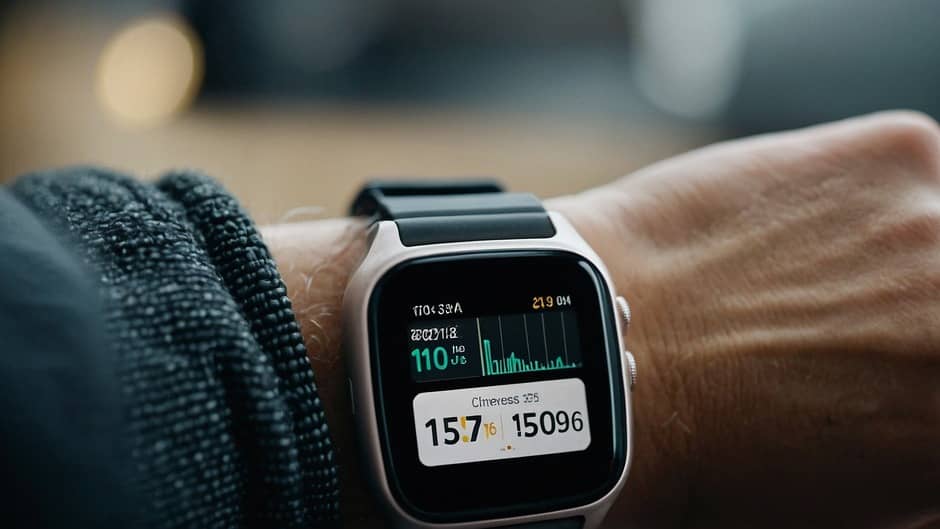Table of Contents
- Poor Mental Health and Junk Food
- The Side Effects of Junk Food on Children’s Health
- 1. Negative Effects of Fast Food on Society
- 2. Fast Food Causes and Effects
- 3. What Happens If You Eat Fast Food Every Day?
- 4. Why Is Fast Food Unhealthy?
Poor Mental Health and Junk Food
You know, it’s critical to discuss the types of things we eat and how they impact our mental health.
A lot of people, especially kids, adore junk food. It’s good, it’s quick, and it’s available everywhere—in a fast-food burger, a bag of chips, or a sweet treat.
However, we frequently are unaware that these foods are capable of much more than just making us gain weight or providing us with a short-term energy spike.
Let’s see how does fast food affect your brain?
They may also have a significant impact on our mental health.
Consider it this way: just as a car need the correct type of petrol to run, so too does our brain require the appropriate fuel to function effectively.
Junk food deprives our brains of the nourishment they require.
Junk food frequently lacks important vitamins and minerals, which are necessary for our brains to function properly.
Take sugar, for example. Our brain might struggle without these nutrients, which can lead to issues like depression and anxiety.
It is included in nearly all junk food, and although it temporarily increases our energy, it wears off quickly.
We could eventually feel worn out, agitated, or even depressed. Anyone, especially kids, may find it challenging to control their emotions as a result of these ups and downs.
Consuming excessive amounts of sugar and processed meals over time can alter brain chemistry, making it more difficult to concentrate, recall details, or even experience happiness.
We must be aware of this as one of the hidden risks associated with processed and quick meals.
Also Read – Is Junk Food Bad For Your Brain? – Why Is Junk Food Bad For Your Mental Health? (2024)
The Side Effects of Junk Food on Children’s Health
Let’s now discuss the effects of junk food on kids in particular.
While kids adore these brightly colored food and packaging, there’s a major downside.
Junk food consumption by children can have long-term negative effects on their health that aren’t always evident right away.
Let’s start by discussing development and growth.
For healthy, robust growth, children require an abundance of essential nutrients. Junk food lacks essential nutrients: proteins, vitamins, and healthy fats are frequently absent or present in very little amounts.
Rather than providing their bodies with the building blocks they require to thrive, these foods are packed with empty calories that accomplish little more than make kids feel full.
This could result in serious issues. For instance, kids who consume a lot of junk food may acquire weight too quickly, putting them at risk for health issues including diabetes, obesity, and heart issues even at a young age.
It’s not only the weight, though. Junk food can also have an impact on children’s emotional state and academic performance.
Similar to adults, children may experience difficulties with focus, memory, and mood due to dietary inadequacies and fluctuations in blood sugar.
Imagine attempting to complete your assignments while experiencing fatigue and irritability due to your diet!
Not only that, though.
Junk food can also have an adverse effect on children’s digestive systems, causing issues like stomachaches and constipation.
Furthermore, a lot of junk food has a lot of artificial flavors, colors, and preservatives, which some studies have connected to behavioral issues including hyperactivity.
Junk food may seem like a small, harmless pleasure, but consuming too much of it can cause major health issues in kids. Because of this, it’s critical to ensure that the majority of what kids eat is wholesome.

1. Negative Effects of Fast Food on Society
Fast food encompasses more than just gabbing a quick bite to eat. We’re all concerned about a bigger picture. You know, fast food has altered our lifestyles, our eating habits, and even our perspectives on food.
All these changes are not positive, though.
Let’s do some analysis.
Health Issues in the Community
Fast food’s role in contributing to societal health issues is one of the main issues.
Fast food frequently contains large amounts of calories, fat, sugar, and salt—ingredients that, when consumed in excess, can cause diabetes, heart disease, and obesity.
These are significant illnesses that individuals suffer from on a daily basis, not simply fancy medical terminology. A community’s everyday life may be impacted and health care expenditures may increase if a large number of residents have these illnesses.
If a large number of your friends or relatives were ill, a lot of things would be different, wouldn’t they?
Impact on Local Economies
The detrimental consequences of fast food on neighborhood businesses must also be taken into account.
Big fast food franchises frequently push out smaller neighborhood eateries that can’t match their rates when they open in a city.
These neighborhood eateries, which provide home-cooked meals and a feeling of camaraderie that you can’t get from a fast-food restaurant, are typically the center of the neighborhood.
A city may feel less distinct, less linked, and more reliant on the same fast food options if these stores close.
Also Read – How To Treat Tension Headaches At Home? – Relieve A Tension Headache Fast? (2024)
2. Fast Food Causes and Effects
Fast food did not suddenly appear; there was a reason it gained such a following, and it does, of course, have drawbacks. Let us examine the reasons for people’s reliance on fast food and the consequences that follow.
Convenience and Time-Saving
Fast food is, first of all, incredibly convenient.
Whether it’s at job, school, or just living our lives, we are all busy.
That’s why it’s so alluring to think that dinner can be served in a matter of minutes.
Due to its quick and simple preparation, fast food is a popular choice among consumers. That being said, things could become difficult in the future.
Fast food’s convenience can cause us to develop unhealthy eating patterns by making us favor quick food over nutritious options.
Addiction to Unhealthy Ingredients
The fact that fast food tastes so wonderful is another reason why so many people choose it.
The ingredients in those milkshakes, burgers, and fries entice our appetites for more. Foods high in sugar, salt, and fat cause our brains to go into a sensory response that makes us want to consume them repeatedly.
The issue is that it gets more difficult to quit eating the more we consume. Later on, this may result in weight gain and a host of other health issues.
3. What Happens If You Eat Fast Food Every Day?
What if someone chooses to consume junk food on a daily basis? For some, this may sound like their ideal situation, but let’s examine this more closely.
Nutritional Deficiencies
To start with, you’re probably not giving your body all the nutrients it needs if you eat junk food every day.
Junk food typically lacks important minerals and vitamins like fiber, calcium, and vitamin C.
Your body is unable to operate correctly if your diet is deficient in certain crucial nutrients. You can experience increased fatigue, difficulty focusing, or even begin to become sick more frequently over time.
Your body is like an automobile; it cannot function properly without the proper gasoline.
Increased Risk of Chronic Diseases
Consuming junk food on a daily basis raises the chance of chronic illness as well.
Junk food is high in unhealthy fats, sugar, and salt, as we have already mentioned.
Overindulgence in these meals can result in elevated blood pressure, elevated cholesterol, and eventually heart disease.
Similar to using the incorrect oil in your car, it will eventually cause the engine to malfunction.
4. Why Is Fast Food Unhealthy?
Why, therefore, is fast food regarded as unhealthy? Investigating this subject is worthwhile since knowing the “why” might guide your decision-making.
High Calorie, Low Nutrient Content
The first is that fast food frequently has a poor nutritious content but a high calorie content.
This indicates that you are consuming excessive amounts of food energy (calories) without obtaining the necessary vitamins and minerals for your body to be healthy.
Consider this: a fast food meal may provide you with 1,000 calories, but nearly none of the nutrients your body requires to survive.
It resembles making unfulfilled promises to yourself.
Presence of Harmful Ingredients
The use of dangerous additives in fast food is another significant issue.
Artificial preservatives, added sugars, and trans fats are common ingredients in fast food products. These elements might be detrimental to your general health as well as your appearance.
Trans fats, for instance, have been connected to heart disease, and added sweets and artificial preservatives can cause inflammation and insulin resistance, among other health issues.
Read us on Medium.




